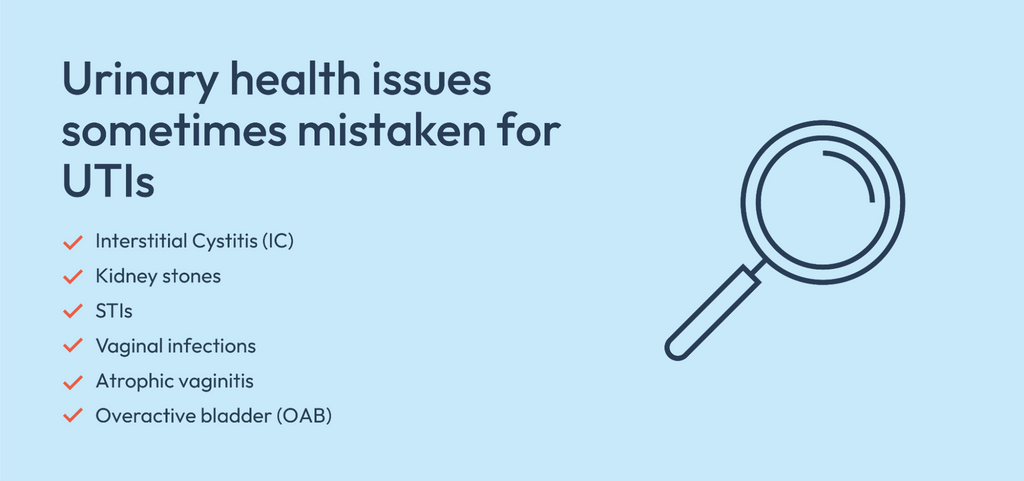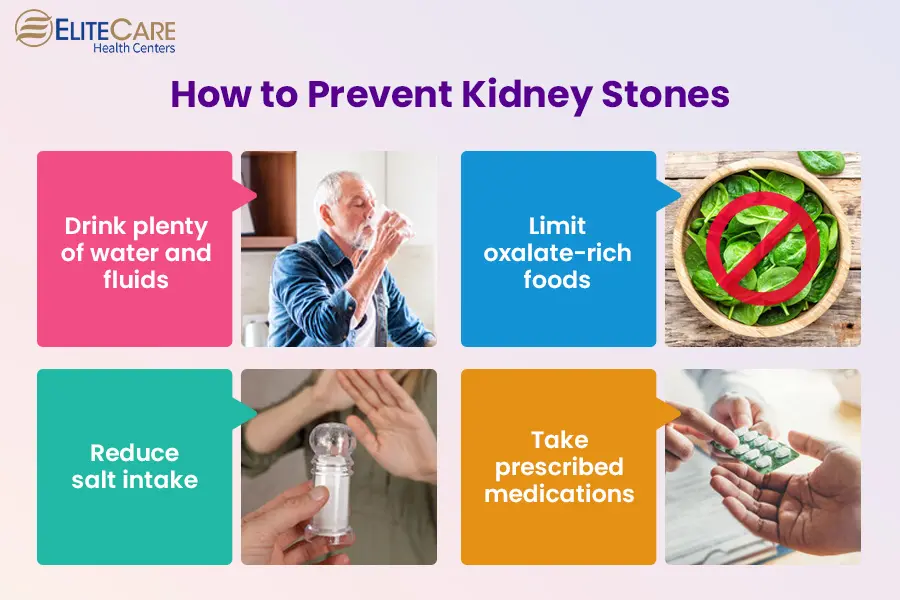Discovering Kidney Stones vs UTI: A Clear Review of Reasons, Signs, and Treatments
Discovering Kidney Stones vs UTI: A Clear Review of Reasons, Signs, and Treatments
Blog Article
Recognizing the Key Differences In Between Kidney Stones and Urinary System System Infections: A Thorough Summary for Clients
Understanding the distinctions between kidney stones and urinary tract infections (UTIs) is necessary for clients who might be experiencing similar signs and symptoms yet face significantly various health and wellness challenges. While both problems can show up pain in the reduced abdomen or back, their underlying reasons, analysis strategies, and treatment procedures split considerably. A nuanced understanding of these differences not only help in precise self-assessment yet additionally notifies conversations with doctor. As we explore these crucial facets, it comes to be clear that acknowledging the special attributes of each problem can exceptionally impact patient results. What might be the very best strategy to addressing these distinctions?
Overview of Kidney Stones
The formation of kidney stones, a often devastating and agonizing condition, highlights the essential significance of preserving renal wellness. The main kinds of kidney stones consist of calcium oxalate, calcium phosphate, uric acid, struvite, and cystine stones, each with distinctive reasons and risk variables.
Numerous variables add to the development of kidney stones. Dehydration is a substantial risk, as inadequate fluid intake can bring about concentrated urine, advertising crystal development. Nutritional habits, consisting of high sodium and oxalate consumption, can worsen the danger. Additionally, metabolic disorders and specific clinical problems may predispose individuals to stone formation.
Symptoms of kidney stones can include extreme flank queasiness, hematuria, and pain, which usually motivate immediate clinical assessment. Therapy choices vary, ranging from raised liquid intake and dietary alterations to medical treatments such as lithotripsy or medical elimination, depending on the size and area of the stones. Recognizing these elements is important for reliable prevention and administration.
Introduction of Urinary Tract Infections
Urinary system tract infections (UTIs) represent a typical yet significant wellness problem, impacting millions of individuals every year. These infections occur when bacteria get in the urinary system, which includes the kidneys, ureters, bladder, and urethra.
The danger elements for developing a UTI include sexual task, specific kinds of contraception, urinary system retention, and a history of previous infections. Individuals with weakened pre-existing conditions or immune systems, such as diabetic issues, might likewise go to greater danger. UTIs can be categorized right into 2 major kinds: complex and uncomplicated. Uncomplicated UTIs are typically limited to the bladder and are extra common in healthy and balanced individuals, while complex UTIs might involve the kidneys and occur in those with underlying health and wellness problems.
Motivate medical diagnosis and therapy are important to protect against issues, such as persistent infections or kidney damage (Kidney Stones vs UTI). Generally, UTIs are treated with antibiotics, and preventative steps can be used for those with constant occurrences
Typical Symptoms Contrast
Signs of urinary system infections and kidney stones can frequently overlap, leading to complication in diagnosis. In comparison, kidney stones often tend to cause severe, sharp pain that emits from the back to the reduced abdomen and groin, frequently explained as colicky pain.
In addition, UTIs might be gone along with by fever and cools, specifically in much more serious situations, while kidney stones can bring about nausea or vomiting and throwing up as a result of extreme discomfort. Both problems can lead to blood in the pee (hematuria), however the visibility of blood is more frequently associated with kidney stones. While discomfort throughout peeing is a trademark of UTIs, kidney stones normally offer with more intense pain episodes, which might go and come. Understanding these symptom distinctions can help people in recognizing their condition, although medical analysis remains necessary for exact medical diagnosis and therapy.
Medical Diagnosis Methods
Exactly how can health care experts properly separate in between kidney stones and urinary system system infections? The diagnostic procedure starts with an extensive medical background and a thorough testimonial of the person's signs. Medical professionals frequently why not check here carry out a physical exam, which may disclose inflammation in the abdomen or flank region, leading the analysis pathway.
Laboratory browse around this site tests play an essential role in distinguishing in between these 2 problems. Kidney Stones vs UTI. A urinalysis can recognize the existence of blood, crystals, or germs, which are a measure of either problem. In cases of urinary system system infections, the urinalysis may reveal a significant presence of white blood cells and nitrites, while kidney stones may present with details crystals
Imaging researches, such as abdominal ultrasound or computed tomography (CT) checks, are essential for picturing kidney stones. These imaging strategies enable doctor to analyze stone dimension, area, and my latest blog post prospective obstructions in the urinary system. In comparison, urinary system infections usually do not need imaging unless complications are believed.
With each other, these diagnostic techniques equip health care experts to properly identify and separate in between kidney stones and urinary tract infections, making certain that patients obtain proper care and management.
Therapy Choices and Prevention
While both kidney stones and urinary system system infections (UTIs) require timely treatment, their management techniques vary substantially.
The treatment for kidney stones often includes discomfort management, hydration, and in many cases, clinical treatments such as extracorporeal shock wave lithotripsy (ESWL) or ureteroscopy to get rid of or damage down stones. People are frequently advised to raise liquid consumption to help with stone passage and reduce reoccurrence. Dietary modifications might likewise be required, depending upon the stone kind.
In contrast, UTIs are mainly treated with antibiotics to get rid of the bacterial infection. The details antibiotic suggested depends on the germs recognized and regional resistance patterns. Additional steps, such as enhanced liquid consumption and urinary anesthetics, might aid reduce symptoms.
Prevention methods vary as well; for kidney stones, maintaining adequate hydration and adhering to nutritional restrictions can be effective. For UTIs, preventative techniques include correct health techniques, peing after sexual intercourse, and perhaps preventative antibiotics for recurring infections. Recognizing these therapy and prevention techniques is vital for efficient administration and to lessen the threat of issues related to both conditions.
Verdict

Recognizing the differences between kidney stones and urinary system system infections (UTIs) is essential for clients that might be experiencing similar symptoms yet deal with significantly various health challenges. The main kinds of kidney stones consist of calcium oxalate, calcium phosphate, uric acid, struvite, and cystine stones, each with distinct causes and risk aspects.

Report this page